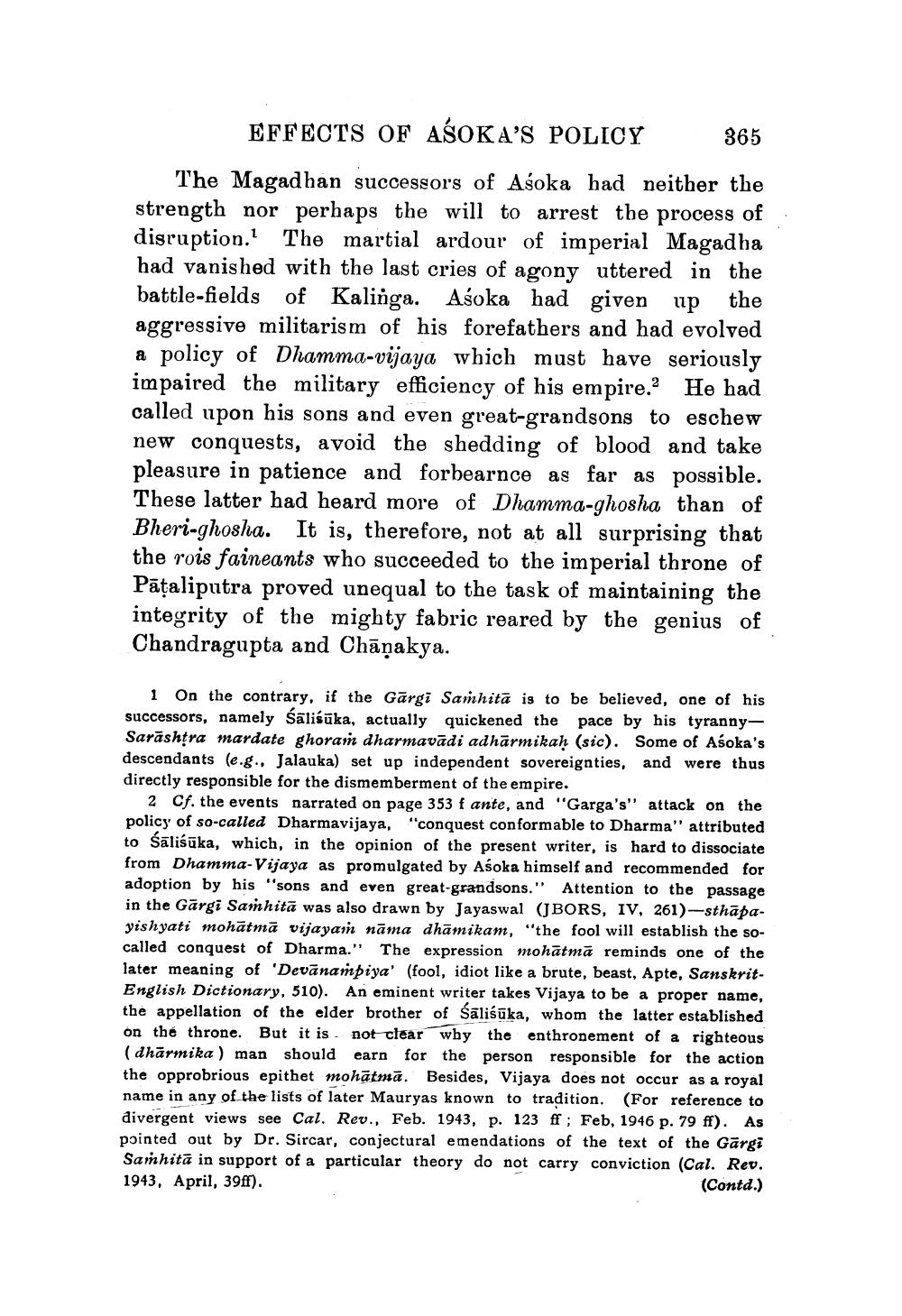________________
EFFECTS OF ASOKA'S POLICY
365
The Magad han successors of Asoka had neither the strength nor perhaps the will to arrest the process of disruption. The martial ardour of imperial Magadha had vanished with the last cries of agony uttered in the battle-fields of Kalinga. Asoka had given up the aggressive militarism of his forefathers and had evolved a policy of Dhamma-vijaya which must have seriously impaired the military efficiency of his empire.? He had called upon his sons and even great-grandsons to eschew new conquests, avoid the shedding of blood and take pleasure in patience and forbearnce as far as possible. These latter had heard more of Dhamma-ghosha than of Bheri-ghosha. It is, therefore, not at all surprising that the rois faineants who succeeded to the imperial throne of Pāțaliputra proved unequal to the task of maintaining the integrity of the mighty fabric reared by the genius of Chandragupta and Chāṇakya.
1 On the contrary, if the Gārgi Samhitā is to be believed, one of his successors, namely Śāliśūka, actually quickened the pace by his tyrannySarăshtra mardate ghoram dharmavādi adhārmikah (sic). Some of Asoka's descendants (e.g., Jalauka) set up independent sovereignties, and were thus directly responsible for the dismemberment of the empire.
2 Cf. the events narrated on page 353 f ante, and "Garga's" attack on the policy of so-called Dharmavijaya, "conquest conformable to Dharma" attributed to Śāliśūka, which, in the opinion of the present writer, is hard to dissociate from Dhamma-Vijaya as promulgated by Aśoka himself and recommended for adoption by his "sons and even great-grandsons." Attention to the passage in the Gārgi Samhitā was also drawn by Jayaswal (JBORS, IV, 261)-sthāpayishyati mohātmā vijayam nāma dhāmikam, "the fool will establish the socalled conquest of Dharma." The expression mohātmā reminds one of the later meaning of 'Devānampiya' (fool, idiot like a brute, beast, Apte, Sanskrit. English Dictionary, 510). An eminent writer takes Vijaya to be a proper name, the appellation of the elder brother of Sāliśūka, whom the latter established on the throne. But it is not clear why the enthronement of a righteous (dhārmika ) man should earn for the person responsible for the action the opprobrious epithet mohatmā. Besides, Vijaya does not occur as a royal name in any of the lists of later Mauryas known to tradition. (For reference to divergent views see Cal. Rev., Feb. 1943, p. 123 ff; Feb, 1946 p. 79 ff). As pointed out by Dr. Sircar, conjectural emendations of the text of the Gārgi Samhitā in support of a particular theory do not carry conviction (Cal. Rev. 1943, April, 39ff).
(Contd.)




